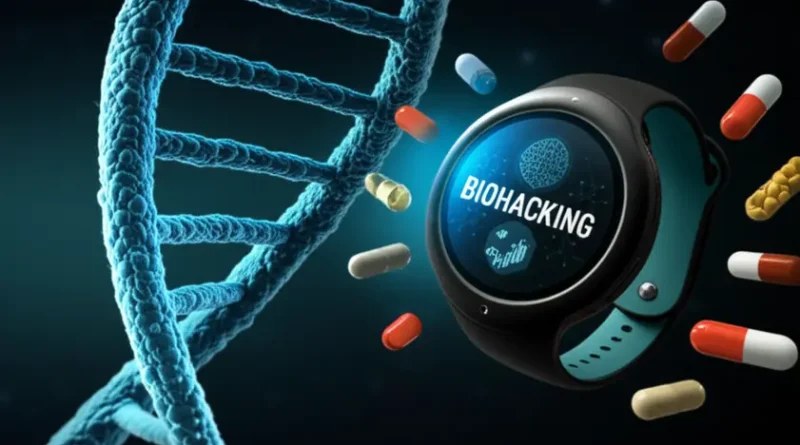What is Biohacking? A Beginner’s Guide
In recent years, the term ‘biohacking’ has become increasingly popular, yet many still wonder what it truly means. This comprehensive guide aims to demystify biohacking, exploring its origins, methods, and benefits while helping you decide if it’s something you want to pursue.
Biohacking is a broad term that refers to the process of using biology and technology to enhance the body’s performance, health, and well-being. While it conjures images of high-tech labs and futuristic tools, biohacking can be as simple as changing your diet or optimizing your sleep. Essentially, it’s about taking control of your own biology and making informed choices to improve your health.
Origins of Biohacking
The roots of biohacking can be traced back to the early days of amateur biology, where enthusiasts experimented with their own bodies to achieve better health outcomes. The concept gained traction over the last two decades with advancements in technology and a growing interest in personal wellness.
One of the first modern biohackers, Dave Asprey, founded the Bulletproof Diet and developed the Bulletproof Coffee to promote his vision of achieving peak performance through optimal nutrition. His work propelled the biohacking movement into the public eye, leading to a community of individuals keen on self-experimentation.
Different Types of Biohacking
There are various approaches to biohacking, which can be broadly categorized into three main types:
- Nutritional Biohacking: This involves modifying your diet and using supplements aimed at improving health and performance. Examples include ketogenic diets, intermittent fasting, and the use of nootropics (cognitive enhancers).
- Technological Biohacking: This encompasses the use of technology to monitor and enhance bodily functions. Devices like continuous glucose monitors and fitness trackers help individuals gather data on their health, leading to tailored interventions.
- Genetic Biohacking: A cutting-edge area that involves gene editing, genetic testing, and even DIY biology. Although it requires specialized knowledge and poses ethical concerns, advancements in CRISPR technology have made this territory fascinating yet controversial.
Methods and Tools for Biohacking
If you’re intrigued by biohacking and want to explore it further, here are some common methods and tools that enthusiasts often use:
- Wearable Technology: Devices like Fitbit and Oura Ring can track physical activity, sleep patterns, and heart rate, providing valuable insights that help users optimize their health.
- Meal Tracking Apps: Tools such as MyFitnessPal and Cronometer help users log their food intake and track macronutrients, offering a personalized approach to nutrition.
- Supplements: While it’s essential to approach supplements cautiously, many biohackers rely on vitamins, minerals, and nootropics to boost energy, focus, and overall well-being.
- Cold Exposure and Heat Therapy: Practices like cold showers, ice baths, or sauna sessions can enhance recovery, simulate stressors, and improve overall resilience.
- Meditation and Mindfulness: Mental biohacking techniques, such as mindfulness practices, enhance emotional well-being, reduce stress, and improve cognitive functioning.
The Benefits of Biohacking
Biohacking can offer several benefits to individuals looking to improve their quality of life:
- Improved Health: By understanding your body’s needs and experimenting with changes, you can make informed choices that promote better physical and mental health.
- Increased Energy Levels: Nutritional and lifestyle adjustments can help maximize your energy output, leading to a more productive day.
- Enhanced Cognitive Function: Nootropics and mindfulness practices may boost cognitive performance, improving memory and focus.
- Personal Growth: The journey of self-experimentation encourages self-reflection and personal growth, allowing you to learn more about what works for you.
Is Biohacking Right for You?
Before diving into the world of biohacking, it is crucial to approach it with caution and thoughtful consideration. Not all methods are one-size-fits-all, and what may work wonders for one individual could be ineffective or even harmful for another.
Always consult with a healthcare professional before making significant changes to your lifestyle, diet, or health regimen, especially when it involves supplements or invasive techniques.
Ultimately, biohacking is about taking control of your health and enhancing your life experience. If approached responsibly, it can provide a remarkable path toward achieving greater physical and mental well-being.

